New local government grant program to reduce carbon footprint thanks to Ventura
- Details
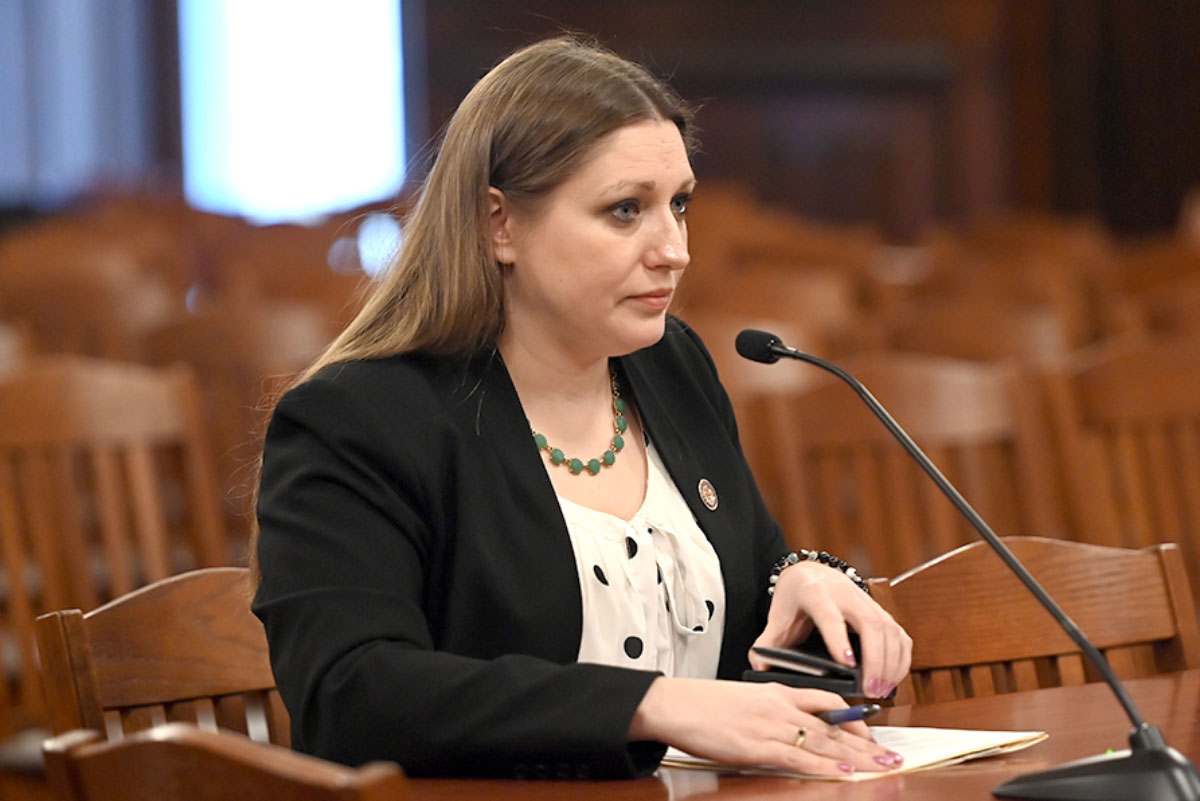 SPRINGFIELD – Under a new law led by State Senator Rachel Ventura, a new grant program for local governments to help mitigate the impact of climate change and tackle growing emission rates from automobiles and trucks will be created.
SPRINGFIELD – Under a new law led by State Senator Rachel Ventura, a new grant program for local governments to help mitigate the impact of climate change and tackle growing emission rates from automobiles and trucks will be created.
“Every level of government needs to address the climate crisis and do their part to help our planet. The cost for an abundance of trees and native grasses can add up quickly, but this program will allow local governments that may not normally be able to afford these projects to take advantage of funding to do so,” said Ventura (D-Joliet). “By creating this opportunity and encouraging local governments to plant native trees and grasses, which are proven to help mitigate climate change through carbon capture, we can aid the process of healing our planet for future generations significantly.”
Read more: New local government grant program to reduce carbon footprint thanks to Ventura
Ellman law strengthens water protections for Illinois
- Details
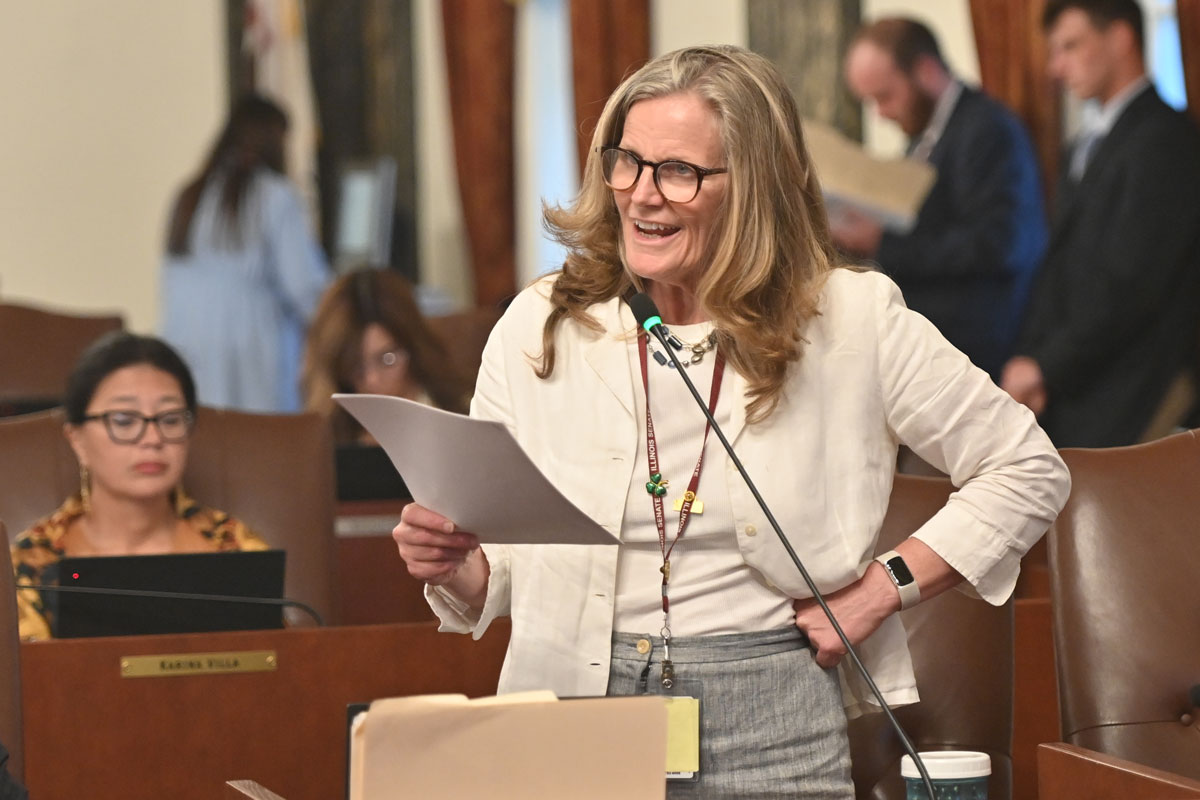 SPRINGFIELD – In an effort to address critical water issues across the state and enhance current protections to fulfill existing water needs, State Senator Laura Ellman championed a law to create the State Water Plan Task Force.
SPRINGFIELD – In an effort to address critical water issues across the state and enhance current protections to fulfill existing water needs, State Senator Laura Ellman championed a law to create the State Water Plan Task Force.
“Over time, contaminants in our waterways pose serious health risks to communities and wildlife,” said Ellman (D-Naperville). “We need to ensure existing and future water concerns are addressed consequentially without any delays.”
This law requires the State Water Plan Task Force to address water issues and reevaluate environmental needs by assisting state and local authorities in the implementation of recommended plans. Further, it requires the task force to publish a State Water Plan at least once every 10 years and meet once per quarter each calendar year.
Read more: Ellman law strengthens water protections for Illinois
Johnson law brings new elementary school to North Chicago
- Details
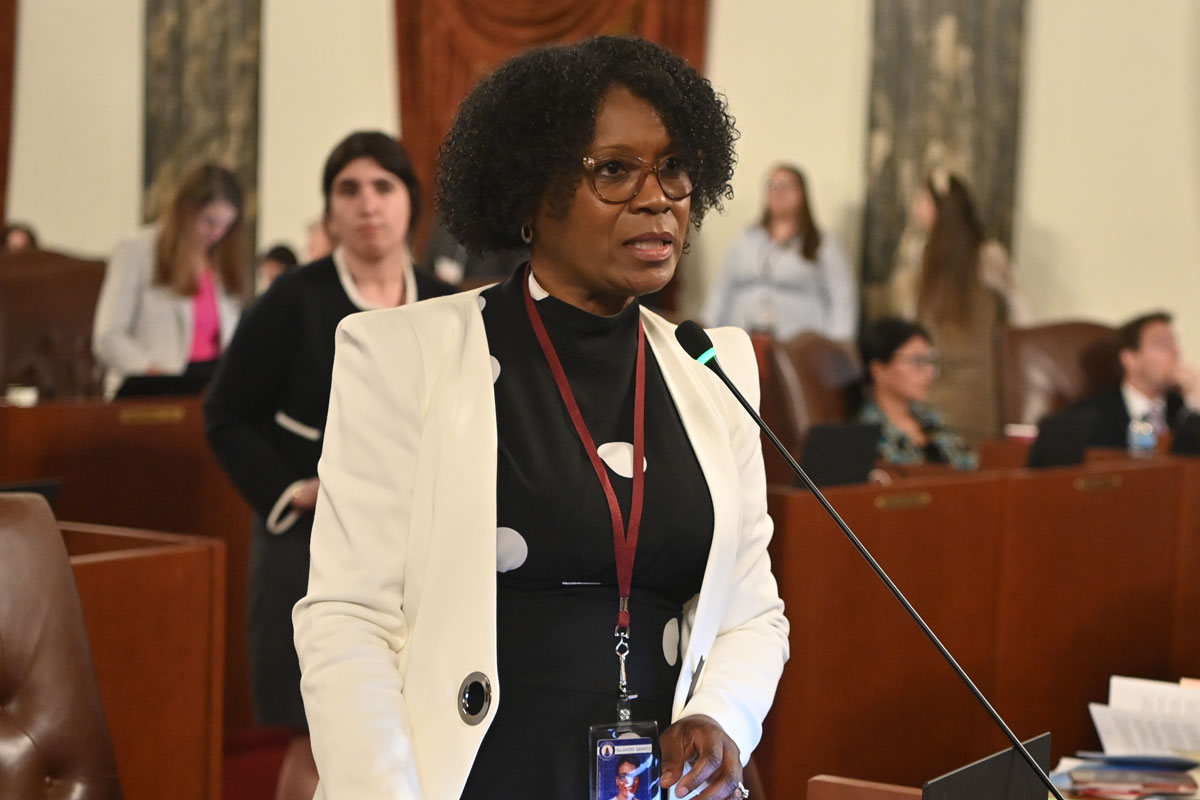 SPRINGFIELD – After realizing the dire need for a new building, State Senator Adriane Johnson led a new law to expedite the process of constructing a new elementary school for North Chicago.
SPRINGFIELD – After realizing the dire need for a new building, State Senator Adriane Johnson led a new law to expedite the process of constructing a new elementary school for North Chicago.
“It’s easy to see the construction of a new school is a more efficient solution than continuing to pour funds into rehabilitating the current building,” said Johnson (D-Buffalo Grove). “We need to create safe and well-equipped schools, and this law will allow that to happen sooner rather than later.”
The new law allows North Chicago District 187 to move forward with a new building on the most efficient timeline possible by bypassing public referendum requirements — saving the district critical resources and time.
Read more: Johnson law brings new elementary school to North Chicago
Collins law will further family reunification efforts for youth in care
- Details
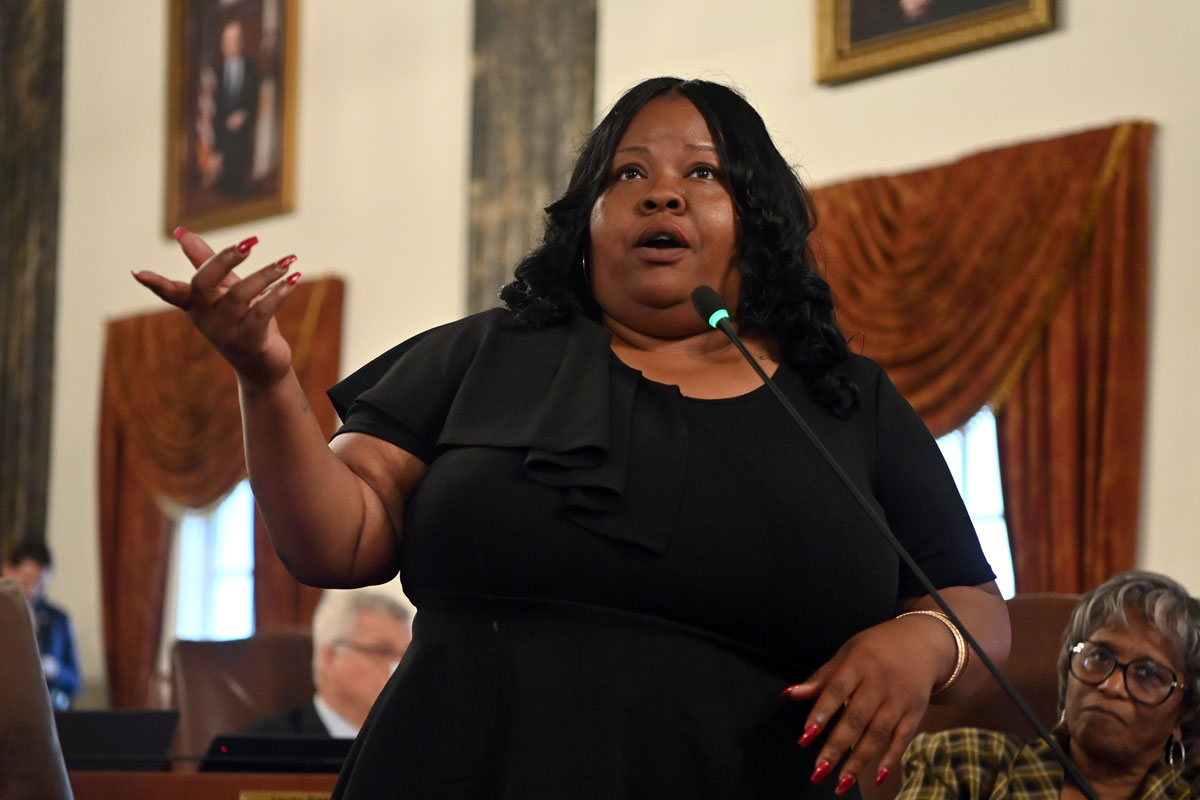 SPRINGFIELD – Financial responsibilities weigh heavy on families in the foster care system and to stop the disproportionate impact, State Senator Lakesia Collins’ new law will include family circumstances as part of the determination process when evaluating parents’ ability to pay for the cost of foster care.
SPRINGFIELD – Financial responsibilities weigh heavy on families in the foster care system and to stop the disproportionate impact, State Senator Lakesia Collins’ new law will include family circumstances as part of the determination process when evaluating parents’ ability to pay for the cost of foster care.
“Many parents are held responsible for more than they can afford to pay within the foster care system, and this can delay any reunification efforts for the child,” said Collins (D-Chicago). “Our focus should be on reunifying families, and with this law we will ensure families are not overloaded with financial responsibilities and give their best effort to take care of the child.”
Read more: Collins law will further family reunification efforts for youth in care
More Articles …
Page 136 of 735



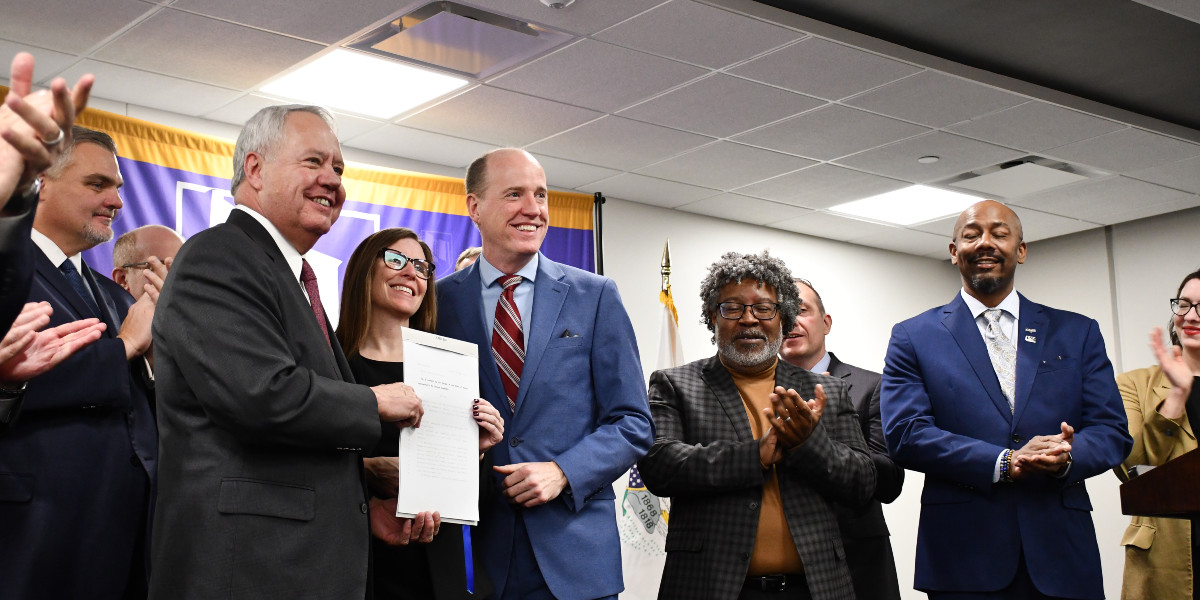

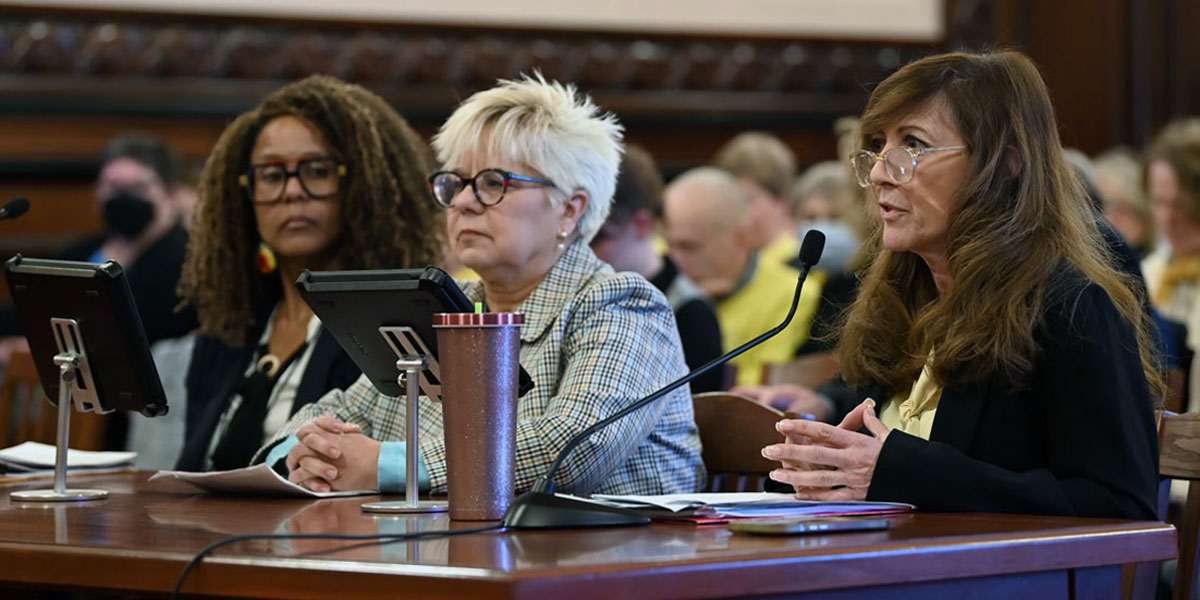


















 © 2026 Illinois Senate Democratic Caucus
© 2026 Illinois Senate Democratic Caucus